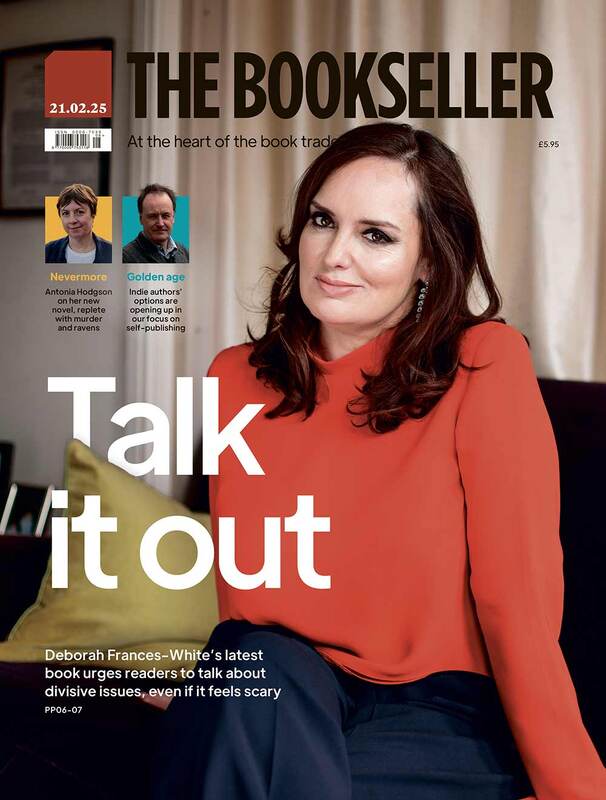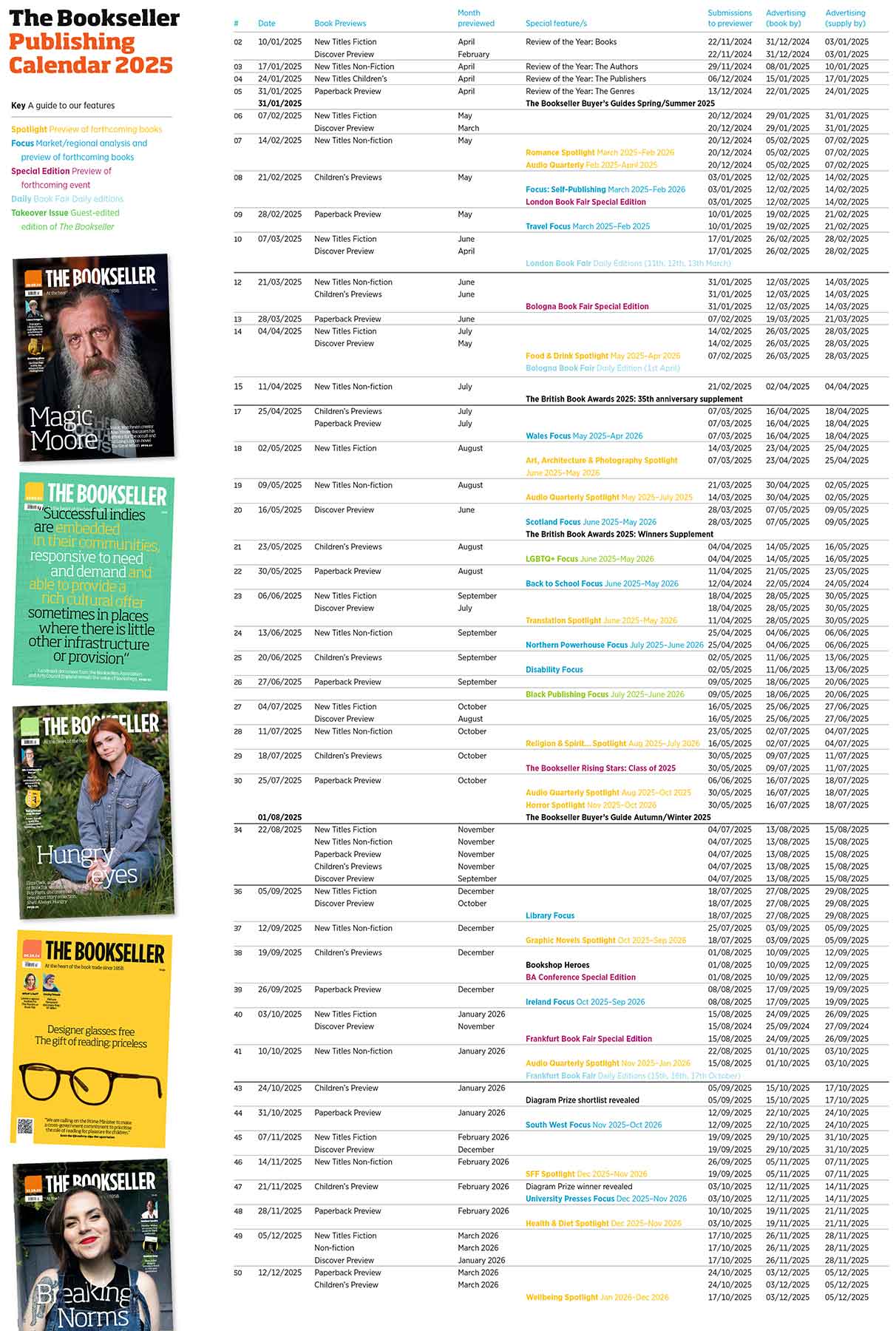You are viewing your 1 free article this month. Login to read more articles.
Up, up and awry
Last week, Nielsen reported that based on estimated data the UK print book market grew 5.2% by volume in 2020, and rose 5.5% by value, to £1.76bn.
Last week, Nielsen reported that based on estimated data the UK print book market grew 5.2% by volume in 2020, and rose 5.5% by value, to £1.76bn. Despite coronavirus, the lockdowns, social distancing and the disruption to publisher lists and author events, we recorded our best year in volume numbers since 2007, and the highest annual value since 2009. Yay!
The curious thing is that 2009 was probably the last good year before what was to come—the recession, the near-collapse of Waterstones, the downturn in the celebrity memoir space, the rise of the Kindle—set us on a different course. Despite the relatively high numbers, it was a year that barely hinted at the disruption that was to follow. I do not know if we will look back on 2020 in the same way. It is clear that Amazon was the real winner during a period when “non-essential” high-street booksellers were shut for 17 weeks—including, for some, over the Christmas period. Layer on digital book sales, and you can understand why the bigger publishers, along with some indie presses, are looking at year-end figures that defy all expectations, but do so with furrowed brows about the future.
Yet bookshops played their part too. If, as Nielsen estimates, the print market dropped 11% during the first lockdown—from March to June—it is clear that it was the reopening of bookshops that super-charged sales across the rest of the year. Perhaps rather than lamenting the market shift, we may come to look back on this as the period when bookshops were able to define their difference, both in terms of their offer to customers but also—and importantly—to publishers. If so, we may be on the cusp of a more profound change than we yet know.
The real agent in all this is, of course, the book. Contrary to what you might read elsewhere, bestsellers, even huge ones such as The Thursday Murder Club, or prize-winners such as this week’s Costa victor The Mermaid of Black Conch, are not created overnight, but instead meticulously brought to the market—the latter after £4,500 was raised by its author Monique Roffey to publicise the book. Coronavirus may have disrupted the matrix, but one of the most promising underlying stories of 2020 is how readers responded—and, as our international coverage shows (see pp06–09), they did so in all of the major English-language book markets, including the US (up 8.2% by volume), Australia (up 7.8% by value) and Ireland (up 9.5%), and elsewhere, when lockdowns allowed.
That said, the trade does not exist in a vacuum. This week’s milestone of the 100,000-plus reported deaths in the UK as a result of Covid-19 is a sobering reminder of how there will be no going back to a time before the virus. The future now is about adjustment, not return, with the recent decline in new cases in the UK, as well as the likely efficacy of the vaccines across the world, a welcome fillip during what otherwise has felt like a dark time.
We are fortunate: books do well in some crises, and they have done well in this one. The numbers should give heart to those who work in this business and hope for the future, whatever the twists ahead.









